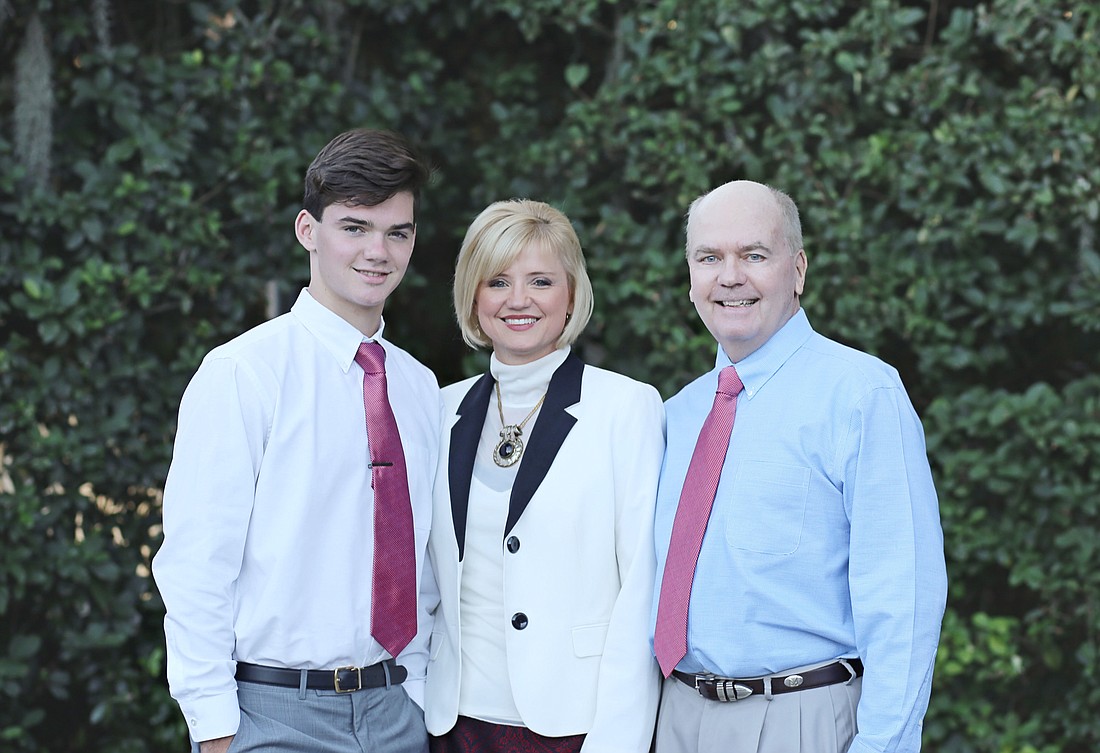- April 18, 2024
-
-
Loading

Loading

As most life-changing events tend to do, the stroke attacked unexpectedly on what might have otherwise been a typical morning in the Osborne household.
Independence Elementary School Principal Dr. Angela Murphy-Osborne woke at 6 a.m. to start her day and get ready for work when she stumbled upon the sight of her husband, Paul, lying on the floor covered in blood.
Paul had been ill the previous few days, but nothing prepared Osborne and her family for the stress and struggle of the following months. Paul was forced to jump back and forth from the intensive-care unit to a rehabilitation center for the next four months.
“We were going back and forth from Oct. 20, (2017), to about Feb. 23, with the exception of about 40 hours when we made it home one time in December,” Osborne said. “But then he got extremely ill again, and we had to take him back by ambulance.”
Now, Paul is recovering slowly at home and continues to receive therapy five times a week. But things have been difficult for the Osborne family ever since that day, and financial stress has loomed over the family as medical bills for Paul’s care continue to pile up.
“The bills just keep coming; I don’t know what the final total will be,” Osborne said. “We’re just lucky Orange County Public Schools has a good benefits package — that’s definitely helped.”
Because her husband must have someone with him at all times and only recently has begun to show significant signs of improvement, a caregiver must be present to assist Paul with day-to-day functions while Osborne is at work.
“The doctors say his prognosis is unknown because they would never have thought that he would be doing this well after such a massive stroke,” she said. “They’re very shocked he’s doing this well. He can eat on his own. He can talk. Cognitively, he’s doing pretty good. He’s got great long-term memory, and he’s walking about a total of 400 feet using a quad cane now. Of course, he has to sit down in his wheelchair every so often and then take a break and start walking again. He went for about five weeks with his left leg totally paralyzed; it was only the weekend before last he could even wiggle his toes for the first time. His arm is still pretty much totally paralyzed.”
Osborne regrets not knowing the signs of an incoming stroke and hopes to spread awareness of what to look for in hopes that it could help someone else.
“Just know the signs,” Osborne advised. “If we had known the signs the day before, my husband’s stroke wouldn’t have hit as bad. … People need to know the signs, like facial drooping or numbness, weakness in the arms, speech difficulties. If you know the signs, you can get to the hospital fast enough and get a drug that can save yourself a whole lot of heartache.”
While Paul was gradually recovering, Osborne’s mother also had a stroke on Jan. 2. Her mother has two caretakers helping her night and day at her home in West Virginia.
Although her husband’s stroke might have been harder to catch, she believes her mother’s stroke was preventable and reminds others to keep track of their blood pressure and sodium intake.
“There’s little things you can do to help too,” she said. “Just walking 30 minutes a day, cutting down on your sodium and cholesterol, making sure you take your blood-pressure medication, making sure you take your blood pressure at least once a day.”
Despite her recent struggles, Osborne said she tries to remain positive and feels grateful for all the support she’s received from OCPS parents and coworkers.
“I’ve spent my whole life trying to give back to people, and I hope when I get through this situation I’ll never forget all the wonderful things people have done for me,” she said. “I’m not asking for anyone to feel sorry for me, but everyone has been so supportive.”